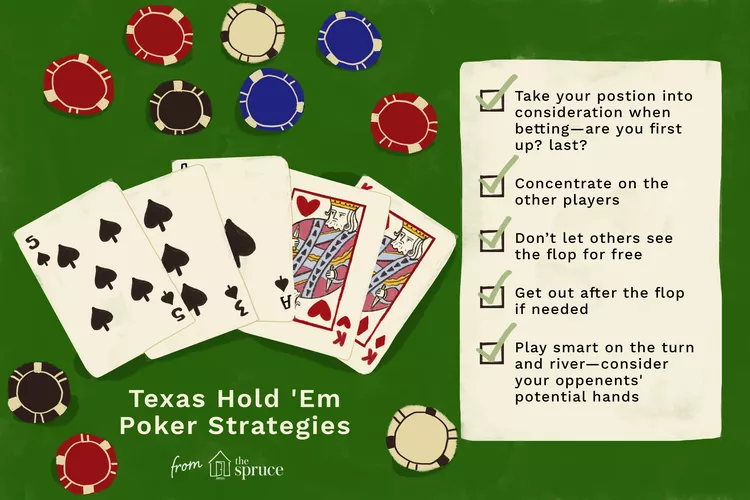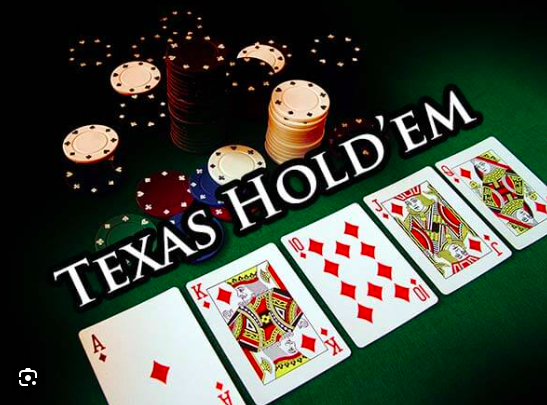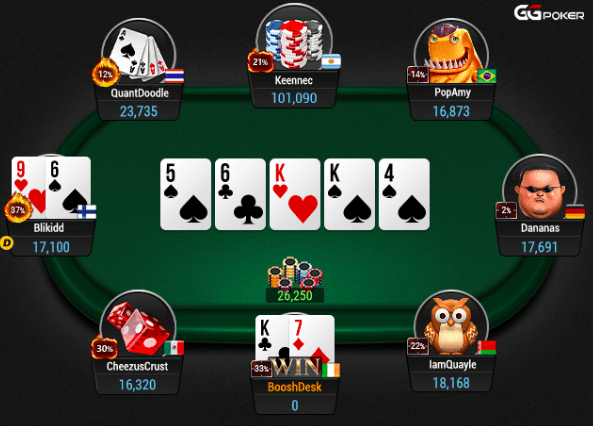Top 10 Texas Holdem Poker Skills,When you first embark on your poker journey, there are many traps waiting for you on the way, and if you are not careful, you will fall into them. In view of this, this article will provide ten quick techniques aimed at helping new poker players get started smoothly.

1. When facing the flipping front and adding fuel, tighten it a bit
A common mistake made by beginners is to use the card you want to raise at a specific position on the table when facing up. Newcomers may fall into the misconception of using KTs, AJo, or 76o to follow up and add up in front of a full table. As the first player to enter the pool in the middle or back position, these cards have excellent playability, but our upfront must be respected and considered an extremely narrow range, and our chances of winning against them with these cards are very poor. Ensure that there is a significant quality difference between the card you play as the first player to enter the pool and the card you play when there is a raise in front of you.
2. Efficient utilization of location
The position has a significant impact on the playability and profitability of a hand of cards. It is not wise to use Q6s to follow in small blind positions, even against extremely wide blind stealing ranges from button positions. The position disadvantage and the player who moves behind you will damage the expected value of your betting. However, if you hold Q6s at the button position and all the players in front discard their cards, this is often an excellent opportunity to raise. If the blind player is too tight or too passive, then flip forward and take the bottom pool away
The possibility of being followed and the positional advantage of being followed make it clearly profitable to raise with this hand in the long run.
3. Estimating Victory Rate Using Makeup Cards
Optimism is a good thing for seasoned players, as it keeps them open-minded and aware of overlooked earning opportunities. However, novice poker players often place too much emphasis on hope, chasing after the temptation of hitting strong cards without calculating whether they can complete the listening process frequently enough. You can use the rule of multiplying by two and the rule of multiplying by four to convert out cards into win rates. In the flip circle, you multiply your number of picks by four to determine your approximate win rate in this hand. If you are in a turn, you will multiply your number of picks by two.
4. Understand the percentage win rate you need
You need a specific win rate to bet on a raise. Sometimes there may be interference from other factors, such as the frequency at which you win extra bets and the frequency at which you can have your opponent discard cards in subsequent rounds. However, if we ignore these factors for simplicity, then you need a 33% win rate for betting with the same pool size and a 25% win rate for betting with half the same pool size. We can use these numbers as benchmarks to estimate our winning rate. If the opponent puts a lot of money into a very small bottom pool, the winning rate you need may be close to 50%, but it will never reach 50% because there is always some dead money in the bottom pool (even if it is just a blind bet).
5. Observing opponents
You are likely not paying attention to the games you have not participated in. In fact, this is a valuable opportunity for you to collect important information about the players on the table. The information you collect may ultimately affect your future decisions. Pay attention to the cards displayed during the opponent's showdown and record them. If you see unconventional betting scales or strange gameplay, you should also take note. The opponent is likely to be unbalanced in some way, which provides you with a good opportunity to change your strategy in an exploitative way.
6. Manage your funds
There are many tricks and a lot of luck factors in poker. The ultimate technological advantage is the decisive factor, but luck is important in the short term. This means that as the most powerful player in the game, no matter how cleverly you play, you still have a certain possibility of losing money on the same day. The role of your funds is to provide a buffer for short-term fluctuations. Try to ensure that you have at least 50 buying funds in regular games, and at least 100 buying funds in more volatile multi table tournaments.
7. Selective bluff
Avoid resorting to deception solely to win the bottom line. For some opponents, bluffing is a very dangerous thing. So you need to make sure to bluff at the right time. To make bluffing a better choice than checking, you should know that your opponent is not a betting station. In addition, you should hold a hand with no showdown value (which means it often loses when there is no improvement). If you cheat in the previous round, prioritize using cards with multiple improvement abilities (semi cheat cards) to cheat and avoid being followed.
8. Don't multitask
Browsing social media, chatting on the phone, and playing games are inevitable ways to distract and make mistakes. When you haven't dealt good cards for a long time, the game may be tough, but you need to improve your ability to open multiple tables, not multitask. You should use the time you haven't participated in the game to study your opponent's tendencies or think about the previous game. At the beginning of playing cards, I often played the guitar, ate and chatted while playing. When I decided to become a professional player, I quickly quit these bad habits.
9. Responsible for errors
You have three choices when facing mistakes. You can ignore mistakes to protect your self-esteem; You can punish yourself for mistakes and establish a negative connection with them; Or you can consider them as opportunities for your own growth. You should analyze errors objectively and without bias. Then you write down the reasons for the errors and how to avoid them in the future.
10. Seeking help and guidance
There are many forums and websites online that provide communication opportunities for players. You can not only seek advice from your card friends, but also utilize the resources provided by the forum to enhance your theoretical knowledge.



